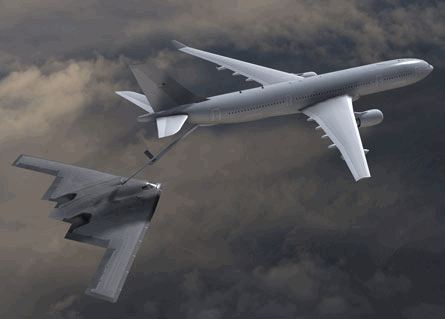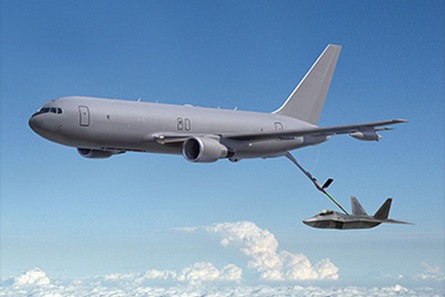US Secretary of Defense Bob Gates has called off the potentially $35 billion KC-X competition and voided the programme's three-year-old acquisition strategy.
Gates' successor after the next administration takes office on 20 January will inherit not only the US Air Force's requirement to replace its oldest KC-135E tankers, but also the duty to craft a new acquisition strategy to guide a politically charged, transatlantic competition.
If that strategy again calls for a third competition - an expected, but not necessarily required, outcome - the approximately two- to three-year selection process completely changes the face of the bidding landscape between Boeing and the Northrop Grumman/EADS North America team.
Completing a new acquisition strategy can take several months. That step would be followed by a formal solicitation process, including the release of a request for proposals. The US Air Force needed two years to select a contractor after issuing the last KC-X tender in January 2006.
 |
|---|
© Northrop Grumman/EADS North America |
Moreover, each step in the acquisition process can be legally challenged by either bidder.
Amid the backdrop of a close presidential election, Gates explains that the most recent extended delay for the KC-X programme is necessary because the DoD "can no longer complete a competition that would be viewed as fair and objective in this highly charged environment".
"The resulting 'cooling off' period will allow the next administration to review objectively the military requirements and craft a new acquisition strategy for the KC-X," Gates says.
DoD's sudden decision, announced on 10 September, elated Boeing and its supporters as much as it disappointed and even "disgusted" the Northrop Grumman/EADS North America team's allies.
"We are extremely disappointed by this decision which represents a major failure of the defence acquisition system," sayts EADS North America chief executive Ralph Crosby: "If the special interests of one contractor have prevailed over the highest priority needs of the US armed forces, it is a terrible precedent."
Even after procedural errors overturned the original selection of the Northrop KC-30B, Boeing's offer based on the KC-767 was facing an uphill battle given the DoD's plan to select a contractor before the end of this year.
 |
|---|
© Boeing |
Indeed, Northrop's proposal still appeared to have the edge. The DoD corrected the errors in the original evaluation partly by amending the RFP to award extra credit for an aircraft with the most fuel capacity. That change gave the larger KC-30B a natural advantage in the second round of bids.
Boeing threatened to withdraw from the competition unless DoD gave the company more time to re-submit its proposal based on a larger aircraft. Boeing's most practical alternatives to the 767-200ERX included the 767-400ER and the 777-200, but neither had yet been fully designed for the tanker role.
The lengthy delay also plays into Boeing's hands by negating the immediate impact of the ongoing strike by the International Association of Machinists, which has forced all commercial aircraft production to a halt in Everett, Washington, and Wichita, Kansas.
Accordingly, Boeing expressed its gratitude for the delay, which allows the "appropriate time for this important and complex procurement to be conducted in a thorough and open competition".
The decision also carries major implications for the US industrial landscape as well.
Moving the KC-X contract selection process to the next administration checks - at least temporarily - the growing inroads by European industry into the US market and blunts the ambitions of Mobile, Alabama, to become a major aerospace hub with final assembly of the A330-based freighter and tanker as the centrepiece.
EADS conditioned its plans to shift final assembly for up to 48 A330s per year to Mobile on winning the tanker contract. The indefinite delay for contract award has not caused Airbus or its corporate parent to re-evaluate those plans.
"As we've consistently maintained, the establishment of the A330 final assembly facility in Mobile, for both tankers and freighters, is predicated on the selection of the Northrop Grumman tanker and a subsequent contract to deliver aircraft. One is dependent on the other," EADS North America says.
Until the KC-X contract was cancelled, it seemed that EADS and other European competitors would continue to overcome US protectionist concerns to sell aircraft and other equipment to the DoD.
In early August, a more confident EADS North America advertised to hire a business development director to offer Airbus jets as replacements for both widebody USAF aircraft, including the Northrop Grumman E-8C Joint STARS and E-3 Airborne Warning and Control System. That advertisement has since been removed from the public web site.
Source: Flight International























